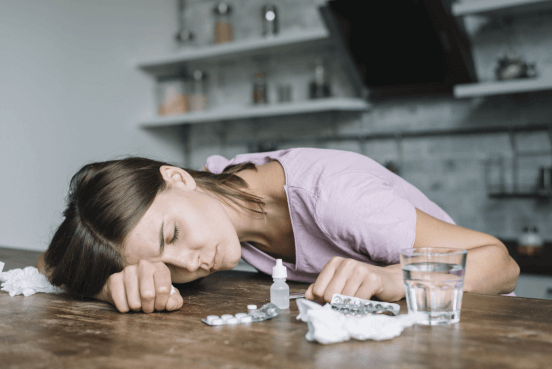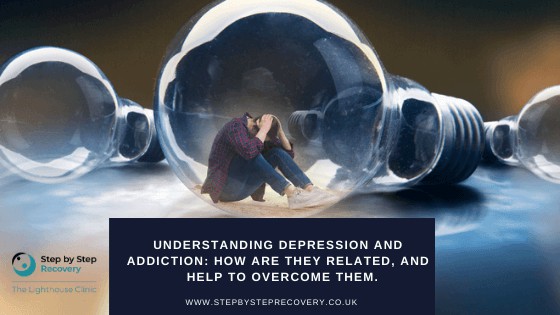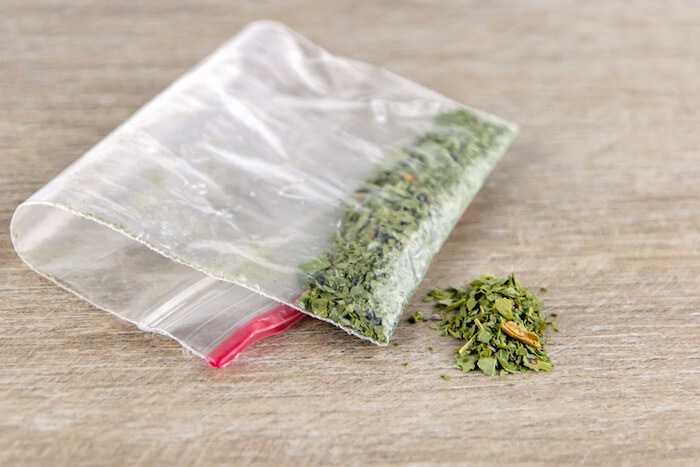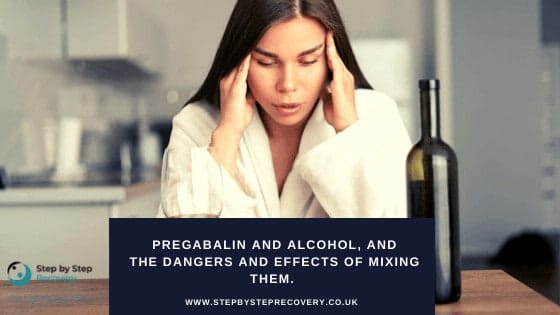Are They Related and How To Help Someone with Depression and Addiction
Many people who suffer with substance misuse issues often also struggle with depression and anxiety. Unfortunately, these illnesses go hand in hand and the disorders can actually be linked. One can often fuel the other, which is why it’s so important to understand the link and get dual treatments for both conditions.
There’s almost a 50% chance that anyone with an addiction will develop some sort of mental health issue at some point of in their lives. This also works the other way, with almost 50% of people suffering from mental health problems developing a substance misuse disorder. So how exactly are these two linked?
For anyone suffering from both of these problems at once it can be very difficult to tell which one came first. Did the addiction spur the mental health issue or vice versa? Research has been conducted into both of these problems and they have found that they are part of a very vicious cycle. Having just one of these issues massively increases the chances of developing the other.
To understand this link even further we need to take a closer look into depression and substance misuse so you can understand the signs of a dual diagnosis disorder.
Understanding Signs of Depression Related with Addiction
It can be difficult to understand the different symptoms and signs of depression because there are so many of them. Signs can manifest themselves in both psychological and physical ways. The symptoms a sufferer will experience all depends on how severe their condition is and what type of depression they have. Here are a few of the common signs of depression to watch out for:
- Having little to no energy
- Feeling sad or unhappy constantly
- Little to no libido
- Feeling constipated
- Having no interest in hobbies or activities
- No motivation to get anything done
- No appetite
- Lower self-esteem
- Problems sleeping
- Aches and pains around the body
- Feeling hopeless
- Not feeling happiness or joy in anything
- Feeling anxious and worried all the time
Depression can manifest itself in all of these ways, typically with feelings of sadness and low energy. Some people, especially men, will experience hostility and irritability as part of their depression.
Regardless how the depression decides to show itself, it must be made clear that this is a mental condition and should be considered to be very different from that person’s emotional state. When someone passes away or you lose a job you can connect that event with emotions. This emotional state will usually end once the crisis has been resolved.
With clinical depression day-to-day life suddenly becomes a struggle. The mood seems to be there permanently which is why many people turn to drinking heavily and using narcotics to ease the pain. The feeling of depression and addiction are closely linked because of the dependency on a substance. In this instance the patient has what is called a dual diagnosis.
Understanding Signs of Addiction
Addition is a mental health issue which can make you feel compelled to drink alcohol, use drugs or even shop too much even though these may have harmful consequences. The uncontrollable desire to keep doing these things will be first in your life and could even end up affecting your relationships.

There are some typical warning signs of addiction which include:
- Your body becomes more tolerant and accustomed to the effects of the substance you are abusing so that larger amounts are needed to achieve the same feeling.
- When you stop the addictive behaviour you experience physical symptoms of withdrawal such as nausea, nervousness, anxiety, agitation and cold sweats.
- You have feelings of sadness and guilt after exhibiting addictive behaviour, even though you are doing so make you feel better.
- Whenever you try to stop using the coping behaviour the cravings and possible withdrawal symptoms will drive you back to those destructive habits.
Does Depression Cause Addiction?
Because the symptoms of depression can feel overwhelming you may believe that a relief for them could be turning to drugs or alcohol. Maybe for a while this may work but self-medicating can be detrimental to any kind of recovery. The more the addictive behaviour is happening, the more likely it is that you will build up a tolerance to it. This goes on to cause a constant need to keep taking those drugs or drinking those drinks.
What’s important to know is that the higher levels of addiction can actually lead to depression symptoms appearing and even worsening. The exact same can be said in reverse. Addiction can make someone feel depressed and low because of the guilt and destruction it brings into people’s lives. Depression is a hard rollercoaster of emotions to deal with, causing a person to turn towards coping mechanisms such as alcohol and drugs to numb the pain. This is the vicious cycle which links both of these illnesses together. Without intervention and help, cycle of addiction and depression won’t stop.
Getting Help with Addiction and Depression
When you have issues with both addiction and depression it is referred to as a dual diagnosis. Anyone who wants to overcome this dual diagnosis should seek out a treatment centre that can handle both disorders at once. This will usually include a rehab as well as a medically assisted detox.
More often than not you will need to attend therapy sessions either alone or in groups. In these sessions there are various symptoms that will be addressed, including:
- Suffering from social anxiety
- Not being able to self-motivate
- Stopping negative and harmful thought patterns
- Overcoming denial
A dual diagnosis will need a treatment plan that is designed specifically for that patient because of its complexity. Some requirements of these types of programme to look out for could include:
- An evaluation of the person’s prior mental health and a detailed history of their addictive behaviour
- Medication that can help to ease severe symptoms of mental disorders
- Counselling sessions to address the links between the depression and addiction problems
- Counselling for spouses and other family members to become educated on the dual diagnosis
- Supportive aftercare once the rehab period has ended
Treatment is available at one of our clinics which you can find more information on here. According to the NHS, addiction is defined as not having control over what you are doing and getting to the point where something harmful could happen to you or someone around you. A recovery programme like the ones we offer is needed in this situation as it can be difficult to overcome a dual diagnosis alone.
Helping a Family Member with a Dual Diagnosis
If you have a loved one that seems to be fighting the twin demons of depression and addiction, the best thing you can do is educate yourself on what is involved in these disorders.
More often than not, someone with both of these disorders will be in a deep denial about the state of their life and will see no necessity in receiving help.
In this situation family interventions can be helpful to compel that person to check into treatment. The best facilities will offer support to the family so that they can help to overcome the addiction and depression with the person who is suffering. This could include counselling sessions with the sufferer or with other families going through the same thing.
Another thing the family will need to focus on is how to integrate someone who is recovering back into their life. The dynamics will change drastically during treatment and adjustments will need to be made to accommodate for these.
Living with any sort of mental health problem coupled with addiction can be a hellish experience. If you are noticing the signs of a dual diagnosis either in yourself or a loved one, it’s imperative to seek out proper treatment and support. Only when the plan has been uniquely tailored to that person will the chances of a lasting recovery with no relapses be maximised.
Anyone who feels they may need help with a dual diagnosis or feels that a family member could benefit from treatment should contact us today. We can offer free and impartial advice as well as specialised treatment programmes to help those with a dual diagnosis.
Page revised in March 2023, by Danielle Byatt, a Level 4 addictions counselling, Level 5 in Leadership & Management, BA applied social work. and Treatment Director at Step by Step Recovery.




